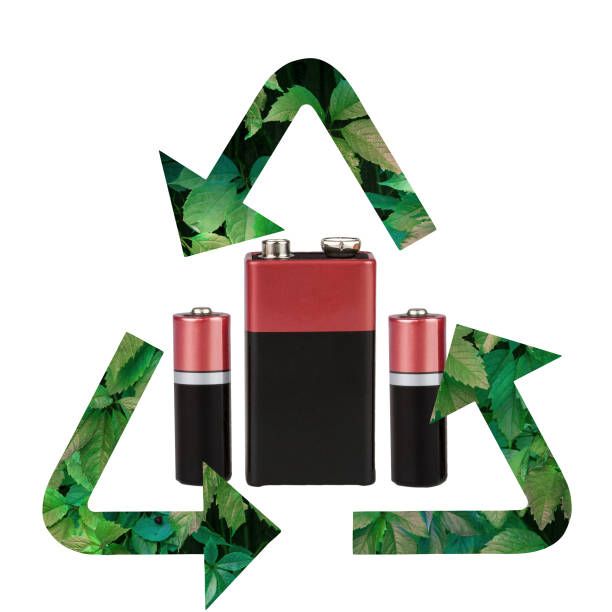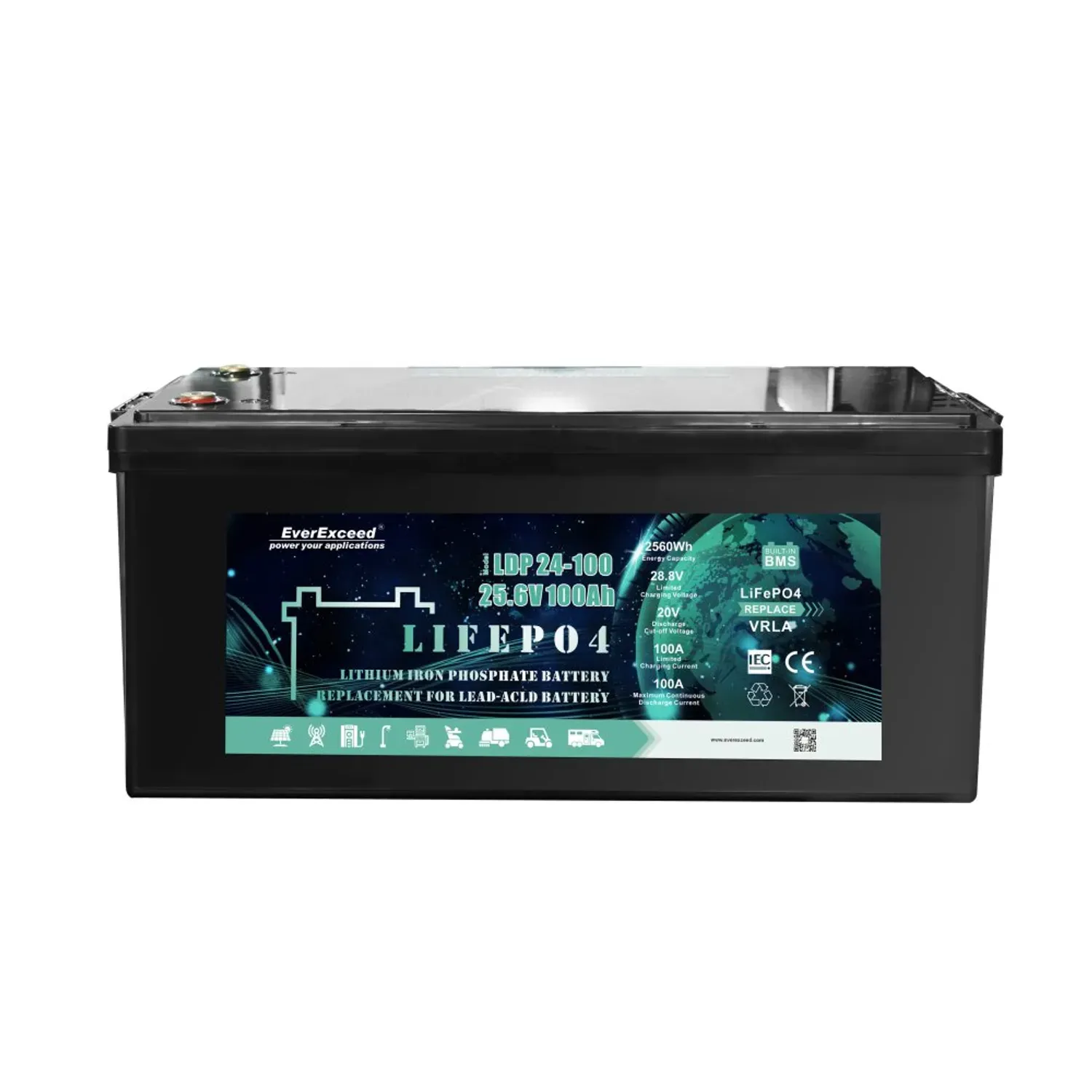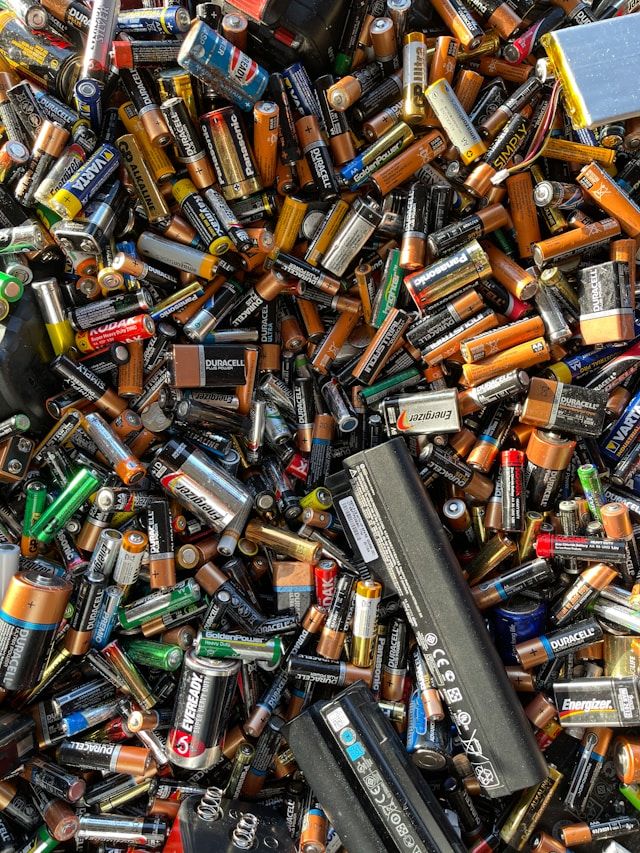
Get a Quote
What Type of Battery is Best for Recycling?
Batteries play a crucial role in powering the devices we rely on daily, from our smartphones to our flashlights. However, when they run out of juice, many of us are puzzled about how to dispose of them safely. The reality is that different types of batteries require different recycling methods, and if we don't handle them properly, some can even pose a threat to the environment. Understanding which batteries are best for recycling is important—not just for keeping our planet safe, but also for reclaiming valuable materials. In this article, we’ll break down the various battery types and provide clear guidance on how to recycle them the right way.
Why Recycling Batteries Is Important?
Many battery users are unaware that items like single-use batteries or lithium-ion batteries can be recycled. So, why should we bother recycling batteries? Well, it turns out there are some pretty good reasons to do it, and it’s easier than you might think!
1. Keeping Our Planet Clean
Batteries can be a bit of a troublemaker when it comes to the environment. If we toss them in the trash, the toxic substances inside can leak out and end up in our soil and water, which isn't good for plants, animals, or us! By recycling, we make sure these harmful materials are safely handled, keeping our planet a little cleaner.
2. Saving Precious Resources
Did you know that batteries are full of valuable metals like lithium, cobalt, nickel, and lead? These metals are limited resources, and mining them can be pretty harsh on the environment. When we recycle batteries, we can recover these metals and use them again, which means less mining and a healthier planet.
3. Saving Energy
Recycling batteries actually uses less energy than extracting and processing new raw materials. By recycling, we're not just conserving resources; we're also cutting down on energy use, which helps reduce our overall carbon footprint. It's a win-win!
4. Following the Rules
Many places have laws and regulations about how to dispose of batteries properly. Recycling them not only helps the environment but also keeps us on the right side of these rules. Plus, it feels good to know we’re doing the responsible thing!
What Batteries Are Recyclable?
When it comes to getting rid of batteries, it's really important to know which ones can be recycled. Not only does recycling help keep our planet safe and healthy, but it also lets us reclaim valuable materials that can be used again. So, let’s explore together which batteries you can recycle, which you should toss in the trash, and how to properly dispose of each type.
Recyclable Battery Types
Commonly recognized recyclable batteries include lithium-ion batteries, lead-acid batteries, rechargeable batteries, and nickel-cadmium batteries. The materials and construction of these batteries determine their recyclability.
Lead-Acid Batteries
Lead-acid batteries are commonly found in vehicles like cars, trucks, and boats, as well as in backup power systems (UPS). They are made from lead and sulfuric acid, setting them apart from other types such as lithium-ion batteries that contain different minerals. They're known for providing a large burst of power, making them ideal for starting engines. Users often depend on these batteries for energy storage in vehicles or power tools.
Lead-acid batteries are highly recyclable, with a recycling rate close to 100% in North America and Europe. Many states, including California, enforce regulations regarding the recycling of lead-acid batteries, classifying them as universal waste. This is because reclaimed lead and other materials can be used to make new batteries, making the recycling process both cost-effective and environmentally friendly. The recycling process for lead-acid batteries is important as it helps recover valuable metals and prevents hazardous waste from damaging the environment. Improper disposal can release toxic materials into the soil and water.
How to Dispose of Old Lead-Acid Batteries?
Always bring used lead-acid batteries to an approved recycling facility. Many stores that sell these batteries also offer takeback services, providing a discount on new batteries when you return the old ones. Never dispose of them in household waste, as they contain hazardous materials that can leak into the environment.
Lithium-Ion Batteries
Found in a wide range of electronics, from smartphones and laptops to electric vehicles and power tools, lithium-ion batteries are known for their high energy density and rechargeability.
These batteries contain valuable metals like cobalt, nickel, and copper. Recycling them helps recover these materials, reducing the need for new mining and minimizing environmental impact. The recycling process for lithium-ion batteries converts most of the components back into usable raw materials.
How to Dispose of Used Lithium-Ion Batteries?
Due to their potential hazards, lithium-ion batteries should never be thrown in household trash. Instead, take them to a local recycling facility that accepts them. Many electronics retailers and community recycling programs offer takeback services. Wrap each battery in tape or place it in a separate plastic bag to prevent short-circuiting during transportation.
Nickel-Cadmium (Ni-Cd) Batteries
Nickel-Cadmium (NiCad) batteries are rechargeable options that provide reliable power for applications such as cordless tools, emergency lighting, and two-way radios. They handle deep discharges effectively, making them suitable for demanding situations. However, the presence of cadmium, a toxic heavy metal, poses environmental risks.
These batteries can be recycled to recover cadmium and nickel, which can then be reused in new batteries and other products. However, due to the toxic nature of cadmium, proper recycling is essential to prevent environmental contamination. Improper disposal can result in hazardous waste entering soil and water.
How to Dispose Nickel-Cadmium (Ni-Cd) Batteries?
Due to the toxic nature of cadmium, it's crucial to recycle Ni-Cd batteries at an approved facility. Follow recycling guidelines and find locations that offer battery takeback services for safe recycling.
Programs like Call2Recycle offer drop-off locations for safe disposal. Never dispose of these batteries in household trash, as they can leach hazardous substances into the soil and water.
Nickel-Metal Hydride (Ni-MH) Batteries
Ni-MH batteries are often used in consumer electronics, hybrid vehicles, and newer digital cameras. They offer a good balance between performance and environmental impact.
While less toxic than Ni-Cd batteries, Ni-MH batteries still contain materials like nickel that can be recovered and reused. Recycling these batteries helps reduce the need for mining new nickel.
How to Dispose Old Ni-MH batteries?
Individual Ni-MH batteries can sometimes be disposed of with household waste, but larger quantities should be taken to a recycling facility or hazardous waste disposal site. It's best to recycle them to ensure the materials are recovered and to minimize environmental impact.
Non-Recyclable Batteries
Certain batteries are labeled non-recyclable due to their chemical makeup or regulatory categories.
Alkaline Batteries
Alkaline batteries are a common choice for many household devices, such as toys, flashlights, and digital cameras. Traditionally, alkaline batteries (AA, AAA, etc.) were not considered worth recycling due to low metal content. Unlike other types, alkaline batteries are considered non-hazardous waste by the federal government, making them easier to dispose of with regular household waste in most areas, except for California, which has specific recycling guidelines.
However, modern alkaline batteries can be recycled to recover zinc and manganese, reducing the need for raw material extraction.
How to Dispose Alkaline Batteries?
In some regions, you can dispose of alkaline batteries with regular household trash. However, it's always best to check local recycling programs, as some areas offer recycling options for environmental reasons. Companies often provide battery takeback services, and users can find recycling locations through the RBRc logo.
Button-Cell or Coin Batteries
These small batteries are commonly used in watches, hearing aids, and small electronic devices like vehicle remotes. Button-cell batteries come in various chemistries, including lithium, which can pose a risk if not disposed of properly. While they are not generally recyclable due to their size and composition, they contain hazardous materials that require special handling.
How to Dispose of Button-Cell or Coin Batteries?
Do not throw button or coin batteries in the trash or municipal recycling bins. Instead, take them to a recycling facility that accepts them. Follow local guidelines for safe disposal to protect the environment and public health.
Primary Lithium Batteries
These are non-rechargeable lithium batteries often found in small electronics like cameras and remote controls. Why They're Non-Recyclable? Primary lithium batteries contain metallic lithium, which is highly reactive and can pose a fire hazard if damaged or improperly disposed of. Although not typically recyclable in the same way as lithium-ion batteries, they must be handled with care.
How to Dispose of These Batteries?
Do not dispose of these batteries in household trash. Place each battery in a separate plastic bag or wrap it in tape to prevent contact with other batteries, then take them to a recycling facility that accepts primary lithium batteries.
Factors Influencing Battery Recycling
Metal Composition
Batteries are made up of different metals, and each type plays a unique role in how well they work and how easily they can be recycled. Take lithium-ion batteries, for example; they often contain valuable materials like lithium, cobalt, and nickel, which make them great at storing energy. On the other hand, lead-acid batteries, commonly used in cars, mainly consist of lead and sulfuric acid, which can be really harmful to the environment if they’re not recycled properly. The way a battery is built influences how it can be recycled. Rechargeable batteries, such as nickel-cadmium and nickel-metal hydride, can be dropped off at special recycling centers. In contrast, single-use batteries usually need a different disposal method. The heavy metals found in batteries can be dangerous for both our health and the environment, especially if they end up in landfills. To keep everyone safe, it’s important for battery users to stick to recycling guidelines and look for battery takeback programs. This way, we can ensure that our old batteries are thrown away in a responsible manner!
Environmental Impact
Improperly throwing away batteries can really harm our environment. When batteries, like lithium-ion or lead-acid types, end up in regular trash, they can leak harmful chemicals, spoiling our soil and water. That’s where recycling comes in! By recycling batteries, we can prevent these dangerous substances from getting into nature and recover precious metals and minerals in the process, which helps cut down on pollution. When companies get involved in recycling, they play a key role in making sure batteries are disposed of safely, which is great for our planet. Many battery types, including those from household gadgets, small button batteries, and rechargeable ones, can easily be recycled through special take-back programs or designated recycling bins. This not only keeps hazardous materials out of landfills but also helps reduce the need to mine for new resources. For example, lithium-ion batteries have valuable metals inside that can be reused in new products. By following recycling guidelines, we can also dispose of power tools and other electronics responsibly. So, let's all do our part and recycle those batteries!
How to Recycle Batteries Properly?
Recycling batteries is essential for protecting the environment and recovering valuable materials. To ensure you're recycling batteries safely and correctly, follow these steps:
1. Identify the Battery Type
Check the Label: The first step is to identify the type of battery you want to recycle. Look for labels or markings on the battery that indicate whether it's alkaline, lithium-ion, nickel-cadmium, lead-acid, or another type. This information is crucial because different types of batteries require different recycling processes.
Note Special Types: Some batteries, like button-cell or coin batteries, have specific disposal requirements due to their size and chemical composition. Pay extra attention to these and any warnings on the label.
2. Find a Recycling Center
Locate Drop-Off Points: Find a battery recycling center or drop-off location near you. Many retailers, electronic stores, and recycling centers accept used batteries. You can check with local solid waste authorities, or organizations like Call2Recycle or the RBRC (Rechargeable Battery Recycling Corporation) to find recycling programs.
Check Local Guidelines: Some areas have specific regulations and programs for battery recycling, especially for hazardous types like lithium-ion and lead-acid batteries. Make sure to follow local guidelines to ensure proper disposal.
3. Prepare for Recycling
Store Safely: Before taking your batteries to a recycling center, store them in a cool, dry place. Avoid mixing different types of batteries together, as this can cause chemical reactions or leaks.
Prevent Short Circuits: For added safety, especially with lithium-ion and button-cell batteries, cover the terminals with non-conductive tape. This prevents the risk of short circuits, which can occur if battery terminals come into contact with each other or with metal objects.
Keep Original Packaging: If possible, keep batteries in their original packaging. If you don’t have the original packaging, use a non-metal container or a dedicated battery recycling bin to transport them.
4. Drop Off Batteries
Transport Properly: When you're ready to recycle, take your batteries to a designated recycling center or drop-off point. Some places might have specific instructions for different battery types, so be sure to follow any guidelines provided by the recycling facility.
Follow Specific Instructions: Certain batteries, like lithium-ion or lead-acid, may have stricter disposal requirements due to their hazardous nature. Pay attention to any additional instructions for these batteries, especially in states like California, where disposal regulations are more stringent.
5. Comply with Local Regulations
Check State and Local Laws: Regulations for battery disposal and recycling can vary, particularly for hazardous batteries. In states like California, there are stricter rules for recycling batteries, and it’s crucial to comply with these regulations to avoid environmental harm and legal penalties.
Use Battery Takeback Services: Many retailers and manufacturers offer battery takeback programs, especially for rechargeable batteries. Using these services ensures that batteries are recycled in an environmentally responsible manner.
6. Additional Tips for Safe Disposal
Do Not Throw in Trash: Never dispose of batteries, especially lithium-ion or lead-acid batteries, in regular household trash. Doing so can cause environmental damage and pose a fire hazard.
Transport Safely: If you’re transporting a large number of batteries, make sure they are securely packed to prevent any movement or contact that could cause damage or short circuits.
By following these steps, you can help ensure that batteries are recycled properly, protecting the environment and allowing for the recovery of valuable metals and materials.
What are Recycled Batteries Used for?
Recycled batteries provide a valuable source of raw materials that can be reused in various industries. Here's how the components of recycled batteries are typically utilized:
1. Manufacturing New Batteries
- Lead-Acid Batteries: The lead recovered from recycling lead-acid batteries is often used to produce new lead-acid batteries. This process is highly efficient, with recycled lead being used in about 80% of new lead-acid batteries.
- Lithium-Ion Batteries: Metals like cobalt, nickel, and lithium extracted from lithium-ion batteries can be used to manufacture new batteries. By using recycled materials, manufacturers can reduce the need for mining, making the production of new batteries more sustainable.
2. Electronics and Automotive Industry
- Metals for Electronics: The nickel, cobalt, and other metals recovered from recycled batteries are used in the production of electronics, such as smartphones, laptops, and power tools. These metals are essential for creating components like batteries, capacitors, and circuit boards.
- Automotive Parts: Lead from lead-acid batteries is not only used in new batteries but also in various automotive parts. Additionally, recycled nickel is used in the production of stainless steel and other metal alloys for the automotive industry.
3. Industrial Applications
- Stainless Steel Production: Nickel and other metals extracted from batteries can be used in the production of stainless steel and other alloys. These materials are then used in a wide range of industrial applications, including construction, manufacturing, and transportation.
- Catalysts and Chemicals: Some metals recovered from batteries, like cobalt, are used as catalysts in chemical processes. They are also used in the production of pigments, ceramics, and other specialized materials.
4. Environmental Benefits
- Resource Conservation: Recycling batteries reduces the demand for raw materials, conserving natural resources and minimizing environmental damage from mining.
- Reduced Pollution: By safely recycling batteries and reclaiming hazardous materials, we prevent toxic substances from entering landfills and the environment, reducing the risk of soil and water contamination.
In summary, the best batteries for recycling are those that contain recoverable, valuable materials and have established recycling processes, such as lead-acid and lithium-ion batteries. By taking the time to recycle all types of batteries properly, we're not only protecting our planet but also making the most of the resources we have. So, let's make recycling batteries a priority and contribute to a cleaner, healthier future for everyone.
FAQ
What types of batteries are recyclable?
Rechargeable batteries like nickel-cadmium (NiCd), nickel-metal hydride (NiMH), and lithium-ion (Li-ion) can be recycled. Also, lead-acid batteries from cars are recyclable. Check local recycling programs or centers for proper disposal options.
How do I determine if a battery can be recycled?
Check the battery type: alkaline, lithium-ion, and nickel-cadmium are often recyclable. Look for recycling symbols on the packaging or check local guidelines. Retailers often have drop-off bins for used batteries. Always verify with local waste management for specific instructions.
Are there batteries that cannot be recycled?
Yes, some batteries, like alkaline batteries, are generally not recyclable in many areas. It's best to check local regulations. For recycling, focus on rechargeable batteries like lithium-ion or nickel-cadmium, which have dedicated recycling programs at authorized collection points.
What is the impact of recycling batteries on the environment?
Recycling batteries reduces toxic waste, conserves natural resources, and minimizes pollution. For example, recycling lithium-ion batteries recovers metals like lithium and cobalt, which can be reused in new batteries, lowering the need for mining and reducing environmental harm. Always dispose of batteries at designated recycling centers.
Where can I find a battery recycling location near me?
You can find a battery recycling location by visiting Earth911.com or Call2Recycle.org. These websites allow you to enter your zip code to locate nearby recycling centers.



